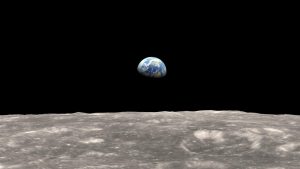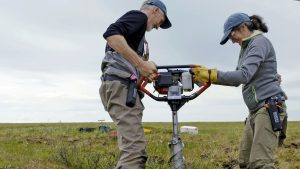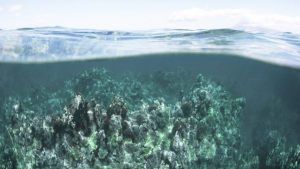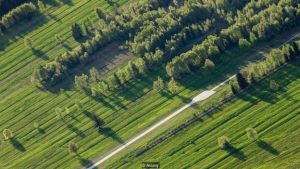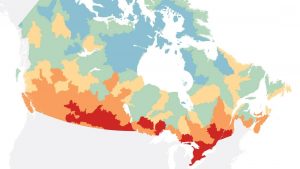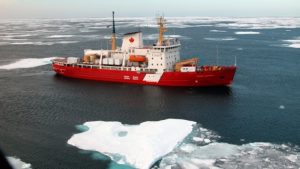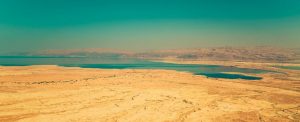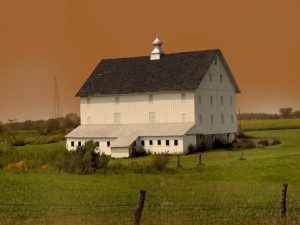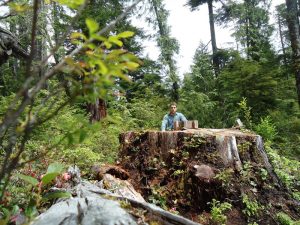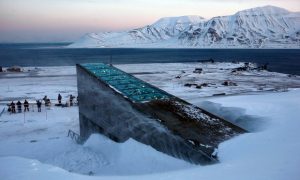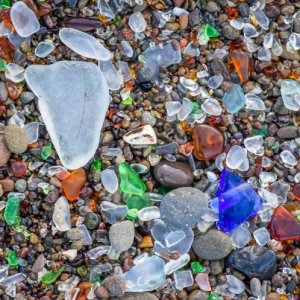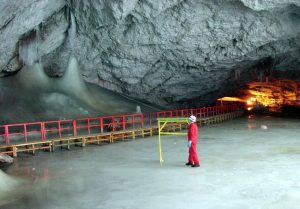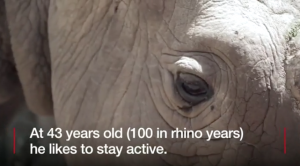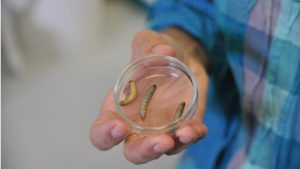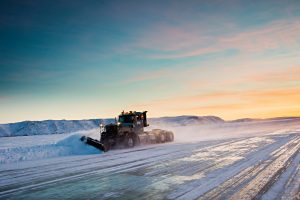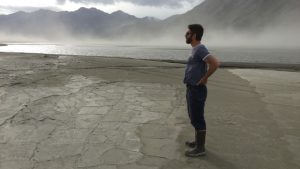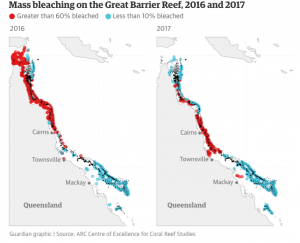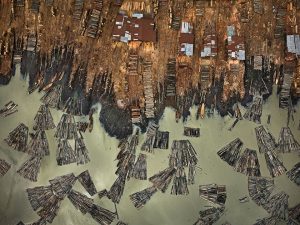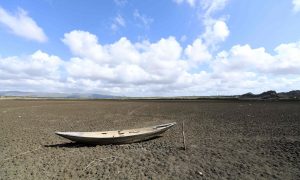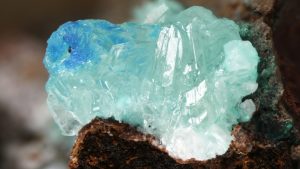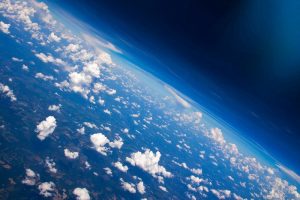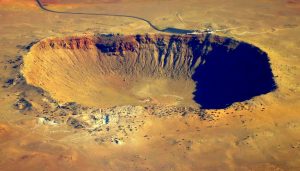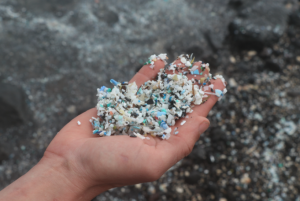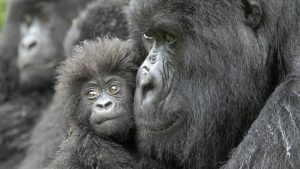
The Anthropocene Will Help Astrobiologists Understand Alien Worlds
By Daniel Oberhaus | Motherboard “In our perspective, the beginning of the Anthropocene can be seen as the onset of the hybridization of the planet, a transitional stage from one class of planetary systems to another,” the researchers write in their paper. “From an astrobiological perspective, Earth’s entry into the Anthropocene represents what might be a…
Read MoreAlaska’s Permafrost is Melting
By Henry Fountain | The New York Times YUKON DELTA NATIONAL WILDLIFE REFUGE, Alaska — The Arctic is warming about twice as fast as other parts of the planet, and even here in sub-Arctic Alaska the rate of warming is high. Sea ice and wildlife habitat are disappearing; higher sea levels threaten coastal native villages. But…
Read MoreThese Tiny Beads Are Designed To Soak Up The Sunblock Chemical That’s Killing Coral
By Adele Peters | Fast Company A tiny amount of oxybenzone, a UV-blocking chemical that’s commonly found in sunscreen, can stunt and deform the growth of coral reefs, sometimes killing the coral. In Hawaii, lawmakers are attempting to ban the sunscreens that contain the chemical so snorkelers don’t unwittingly destroy the reefs they visit. But until that happens–and until people…
Read MoreThe animals thriving in the Anthropocene
By Chris Baraniuk | BBC Future In the streets and alleyways of Baltimore, Dawn Biehler and her colleagues have been hunting for mosquito larvae – with turkey basters. “We go to a block and look for every single standing water container we can find,” she explains. “It could be as small as a bottle cap –…
Read MoreThe unappreciated urban wilds
By Brandon Kaim | Anthropocene Magazine In many parts of the world, urban nature is experiencing a renaissance. Stories abound of biodiversity in cities, vegetated infrastructure, the psychological benefits of greenery. But one aspect of urban nature remains underappreciated: wildness. Places where nobody is telling nature what to do. Where it’s not landscaped or improved or…
Read MoreCharting Canada’s troubled waters: Where the danger lies for watersheds across the country
By Ivan Semeniuk | The Globe and Mail With a mere 0.5 per cent of the world’s population, Canada has jurisdiction over 20 per cent of the global water supply – a vast and valuable resource that is largely taken for granted by those who depend on it. Yet, according to the first national assessment of Canada’s…
Read MoreClimate change researchers cancel expedition because of climate change
By Laura Glowacki | CBC News A team of scientists had to abandon an expedition through Hudson Bay because of hazardous ice conditions off the coast of Newfoundland caused by climate change. About 40 scientists from five Canadian universities were scheduled to use the icebreaker CCGS Amundsen for the first leg of a 133-day expedition across the Arctic. It’s part…
Read MoreThe Earliest Evidence of Human Impact on Earth’s Geology Has Been Found in The Dead Sea
By Bec Crew | Science Alert Scientists have uncovered the earliest hints of human-caused changes in Earth’s geological processes, and they suggest that we’ve been impacting the planet’s climate and ecosystems for up to 11,500 years. Based on core samples dug up from the Dead Sea, erosion rates in the area were completely incompatible with what…
Read MoreThis Machine Just Started Sucking CO2 Out Of The Air To Save Us From Climate Change
By Adele Peters | Fast Company Sitting on top of a waste incineration facility near Zurich, a new carbon capture plant is now sucking CO2 out of the air to sell to its first customer. The plant, which opened on May 31, is the first commercial enterprise of its kind. By midcentury, the startup behind it–Climeworks–believes…
Read MoreThe Banality of the Anthropocene
By Heather Anne Swanson | Resilience.org I want to propose an Anthropocene territorialization and a subject-making project in which anthropologists might want to engage. The territory of which I write is a place called Iowa. There are plenty of troubling things about the Anthropocene. But to my mind, one of its most troubling dimensions is the…
Read MoreHow Thousand-Year-Old Trees Became the New Ivory
By Lyndsie Bourgon | Smithsonian.com It was a local hiker who noticed, during a backwoods stroll in May 2012, the remains of the body. The victim in question: an 800-year-old cedar tree. Fifty meters tall and with a trunk three meters in circumference, the cedar was one of the crown jewels in Canada’s Carmanah Walbran Provincial Park.…
Read MoreArctic stronghold of world’s seeds flooded after permafrost melts
By Damian Carrington | The Guardian It was designed as an impregnable deep-freeze to protect the world’s most precious seeds from any global disaster and ensure humanity’s food supply forever. But the Global Seed Vault, buried in a mountain deep inside the Arctic circle, has been breached after global warming produced extraordinary temperatures over the winter,…
Read MoreAnthropocene Talk at the AGO with Jennifer Baichwal, Nick de Pencier and Edward Burtynsky
Anthropocene Talk at the AGO – May 3, 2017
Read MoreWorld’s Oldest Cave Glacier Reveals 10,000 Years of Climate Data
By Cassie Kelly | EcoWatch Deep inside the Apuseni Mountains you’ll find the Scărișoara Ice Cave in Transylvania, the oldest cave glacier in the world. You’ll also find some pretty incredible climate data from the last 10,000 years. An international team of scientists from several institutions, including the University of South Florida, University of Belfast and…
Read More[PRESS RELEASE] The Movie Network Announces Canadian Original Documentary Development and Production Slate
TORONTO, April 27, 2017 /CNW/ – As the documentary world gathers at the 2017 Hot Docs Canadian International Documentary Festival, Bell Media’s The Movie Network (TMN) has confirmed its commitment to the development and production of a diverse array of provocative, compelling documentaries from some of Canada’s finest filmmakers. The list of eight new works commissioned…
Read MoreLast male northern white rhino joins Tinder to raise money
BBC News The last male northern white rhino on earth has joined the dating app Tinder – as part of fundraising efforts by conservationists to save the species. At 43 (or 100 in rhino years), Sudan is described as “one of a kind”, who likes to eat grass and chill in the mud. Attempts to…
Read MorePlastic-eating caterpillar could munch waste, scientists say
By Helen Briggs | BBC News A caterpillar that munches on plastic bags could hold the key to tackling plastic pollution, scientists say. Researchers at Cambridge University have discovered that the larvae of the moth, which eats wax in bee hives, can also degrade plastic. Experiments show the insect can break down the chemical bonds of…
Read MoreIce Roads Ease Isolation in Canada’s North, but They’re Melting Too Soon
By Dan Levin | The New York Times ON THE TLICHO WINTER ROAD, Northwest Territories — In Canada’s northern latitudes, the frigid winter means freedom. That is when lakes and rivers freeze into pavements of marbled blue ice. For a few months, trucks can haul fuel or lumber or diamonds or a moose carcass to the…
Read MoreClimate change causes glacial river in Yukon to change direction
By Brandie Weikle | CBC News Climate change has caused the massive Kaskawulsh Glacier in the Yukon to retreat so much that its meltwater abruptly switched direction, in the first documented case of “river piracy” in modern times. Instead of flowing into the Slims River and then north to the Bering Sea, the water has changed course and now flows…
Read More[TALK] Anthropocene: Edward Burtynsky, Jennifer Baichwal, Nick de Pencier
Wednesday May 3, 2017 8 pm Baillie Court, Art Gallery of Ontario Members $15 | Public $17 | Students $10 Tickets available online Thursday March 23 BUY TICKETS Join us for a conversation with renowned photographer Edward Burtynsky and acclaimed filmmakers Jennifer Baichwal and Nick de Pencier. They will be discussing their latest collaborative project—Anthropocene —…
Read MoreRecord-breaking climate change pushes world into ‘uncharted territory’
By Damian Carrington | The Guardian The record-breaking heat that made 2016 the hottest year ever recorded has continued into 2017, pushing the world into “truly uncharted territory”, according to the World Meteorological Organisation. The WMO’s assessment of the climate in 2016, published on Tuesday, reports unprecedented heat across the globe, exceptionally low ice at both…
Read MoreWe’ve created 208 new minerals: Time for a new, human-influenced Anthropocene epoch?
By Nicole Mortillaro | CBC News Humans have created 208 new minerals, bolstering the argument that the planet has entered a new epoch in its geological history, a study being published today finds. In the study, published in American Mineralogist, the researchers explain that the influx of minerals is the largest since the increase of oxygen in…
Read MoreWill naming the Anthropocene lead to acceptance of our planet-level impact?
By Lehigh University | EurekaAlert “What’s in a name? That which we call a rose by any other name would smell as sweet.” This phrase–from William Shakespeare’s tragic play Romeo & Juliet–is among the most famous acknowledgements in Western culture of the power of naming to shape human perception. According to the International Union of Geological…
Read MoreIs the ‘Anthropocene’ Epoch a Condemnation of Human Interference — or a Call for More?
By Wesley Yang | The New York Times Perhaps you’ve noticed, amid the hot invective and dry mockery of daily events in your social-media feeds, reports of the glaciers melting at each pole. Arctic ice cover reached record lows this summer and fall, while in Antarctica, we saw the continuing enlargement of an already massive crack…
Read MoreSimple equation shows how human activity is trashing the planet
By Owen Gaffney | New Scientist Homo sapiens now rivals the great forces of nature. Humanity is a prime driver of change of the Earth system. Industrialised societies alter the planet on a scale equivalent to an asteroid impact. This is how the Anthropocene– the proposed new geological period in which human activity profoundly shapes the environment –…
Read MoreIntroducing the terrifying mathematics of the Anthropocene
By Owen Gaffney and Will Steffen | The Conversation Here are some surprising facts about humans’ effect on planet Earth. We have made enough concrete to create an exact replica of Earth 2mm thick. We have produced enough plastic to wrap Earth in clingfilm. We are creating “technofossils”, a new term for congealed human-made materials – plastics…
Read MoreSea Unworthy: A Personal Journey into the Pacific Garbage Patch [Slide Show]
By Erica Cirino | Scientific American More plastic in the oceans, found at greater depths than thought, would mean a bigger threat to environmental—and possibly human—health. View the slide show and continue reading on Scientific American.
Read MorePrimates face mass extinction by mid-century, scientists warn
By Ivan Semeniuk | The Globe and Mail Primates are now so threatened by human activity that the group is heading for “a major extinction event” by the middle of this century, scientists warn. The grim forecast comes from a global assessment of all known species of primates, the mammalian order to which humans belong and whose members…
Read More